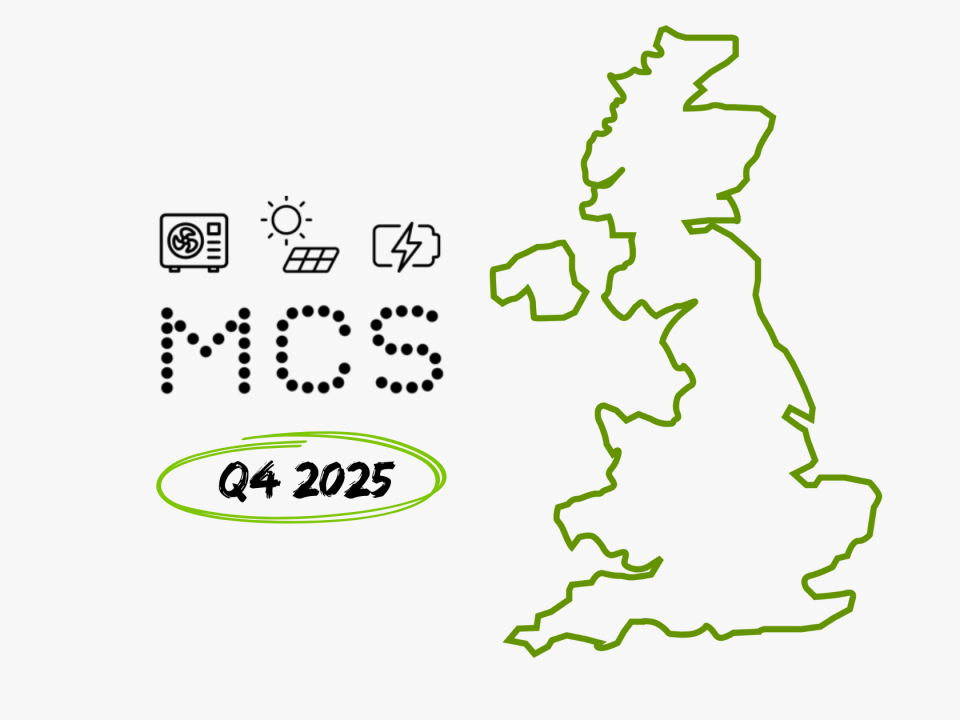
What the New UK Solar Roadmap Means for Tradespeople
August 4, 2025
Powering the Future: GRE Energy Training Collaborates with Heat Engineer Software
September 16, 2025In today’s blog, we look at how BPEC training for renewable energy installers has never been more important, with the latest MCS data highlighting both growth and areas where technical training is critical.
At GRE, we deliver a full suite of BPEC training for renewable energy installers across electrical and heating disciplines. Our training is designed to ensure installers not only achieve certification, but also avoid the common pitfalls that MCS technical assessors continue to report.
Electrical Pathways: Solar PV and Battery
MCS assessment data shows the most frequent PV issues are avoidable: missing schematics, incorrect inverter clearances, and poor cable management. These errors can undermine both compliance and confidence on site.
Our BPEC Solar PV Installer & Battery Storage Systems course provides the technical knowledge and hands-on practice to deliver fully compliant installs. For those looking to specialise individually, we offer dedicated pathways – our Battery Storage Systems course for those focusing on battery technology, and the BPEC Award in Solar Photovoltaic Systems for those choosing solar (although undergoing both together yields the biggest return on investment for installers.)
These courses equip electricians to expand into one of the fastest-growing renewable markets with confidence, while directly addressing the issues raised in MCS outcomes (for both theoretical and practical applications.)
The Growth: 2025 So Far for Renewable Energy Installers
This year has marked another record-breaking period for renewable installations. Between 1st January and 31st July 2025, there were 165,163 certified solar PV and battery installations registered with MCS, up from 116,682 in the same period of 2024 (a year-on-year increase of over 41%) The number of certified contractors has also grown steadily, rising from 3,955 to 4,280 (+8.2%).
Breaking this down by technology, solar PV continues its strong momentum, with 143,255 certified installations compared to 106,862 last year (a rise of 34%.) Installer numbers have kept pace, with 4,268 contractors now accredited, up from 3,944.
However, the most dramatic growth has been in battery storage. Installations more than doubled, rising from 9,820 in 2024 to 21,908 so far in 2025 (an increase of 123%.) Certified installer numbers also jumped by nearly half, up 46% from 1,635 to 2,393.
Together, these figures underline a clear trend: solar PV and battery storage are no longer optional add-ons but core revenue streams for electrical businesses. For installers, this reinforces the importance of upskilling now, ensuring you’re trained and certified to capture the opportunities that this fast-expanding market offers.
Heating Pathways: Heat Pumps and Beyond
For heat pump installations, the most common MCS non-conformities include poor insulation of pipework, inadequate sealing through walls, and incorrect electrical connections. These (with the exception of electrical connections which should always be carried out by a qualified electrician) are precisely the skills reinforced in our BPEC Award in Air and Ground Source Heat Pump Systems (Grant-Funded) Course and the BPEC Level 3 Award in Air Source Heat Pump Systems – Non-Refrigerant Circuits (Grant-Funded) Course.
To support installers in building a broader heating portfolio, we also deliver complementary BPEC qualifications such as G3 Unvented Hot Water, WRAS Water Regulations, Low Temperature Hot Water Heating Systems, and Solar Hot Water. Oh, and did we mention we still have some £500 heat pump government back training vouchers left?
While not all of these are required for MCS, they are highly valuable add-ons that strengthen an installer’s competence and open up wider work opportunities.
The Growth: 2025 So Far for Renewable Energy Installers
The heat pump sector has also continued to see steady growth. From January to July 2025, there were 35,712 certified heat pump installations delivered by 2,198 certified contractors, compared with 32,373 installations and 1,986 contractors during the same period in 2024. This represents a year-on-year increase of 10.3% in installations and 10.7% in certified contractors, further evidence of the sector’s resilience and the growing demand for low-carbon heating solutions across the UK.
Why Choose GRE for BPEC Training?
BPEC remains the benchmark for quality in renewable qualifications, but the difference lies in delivery. At GRE, we combine BPEC accreditation with expert instructors, purpose-built training facilities, and a curriculum shaped around real MCS assessment outcomes.
That means you don’t just leave with a BPEC certificate, you leave prepared to pass assessments, avoid costly mistakes, and deliver renewable projects that meet the highest standards.
Explore our full range of electrical and heating BPEC courses today.
Learn more about BPEC here.
View the latest MCS data here.




